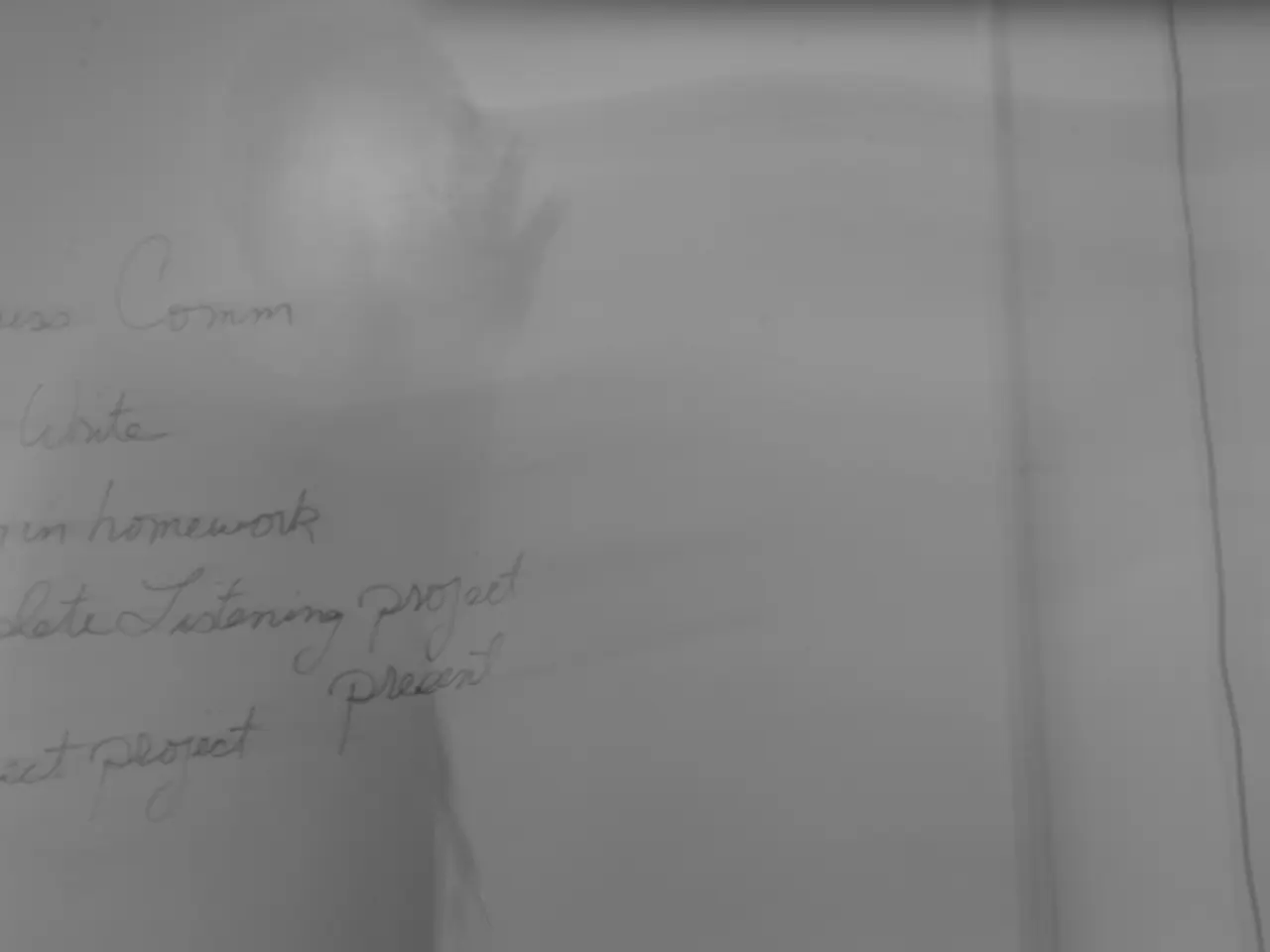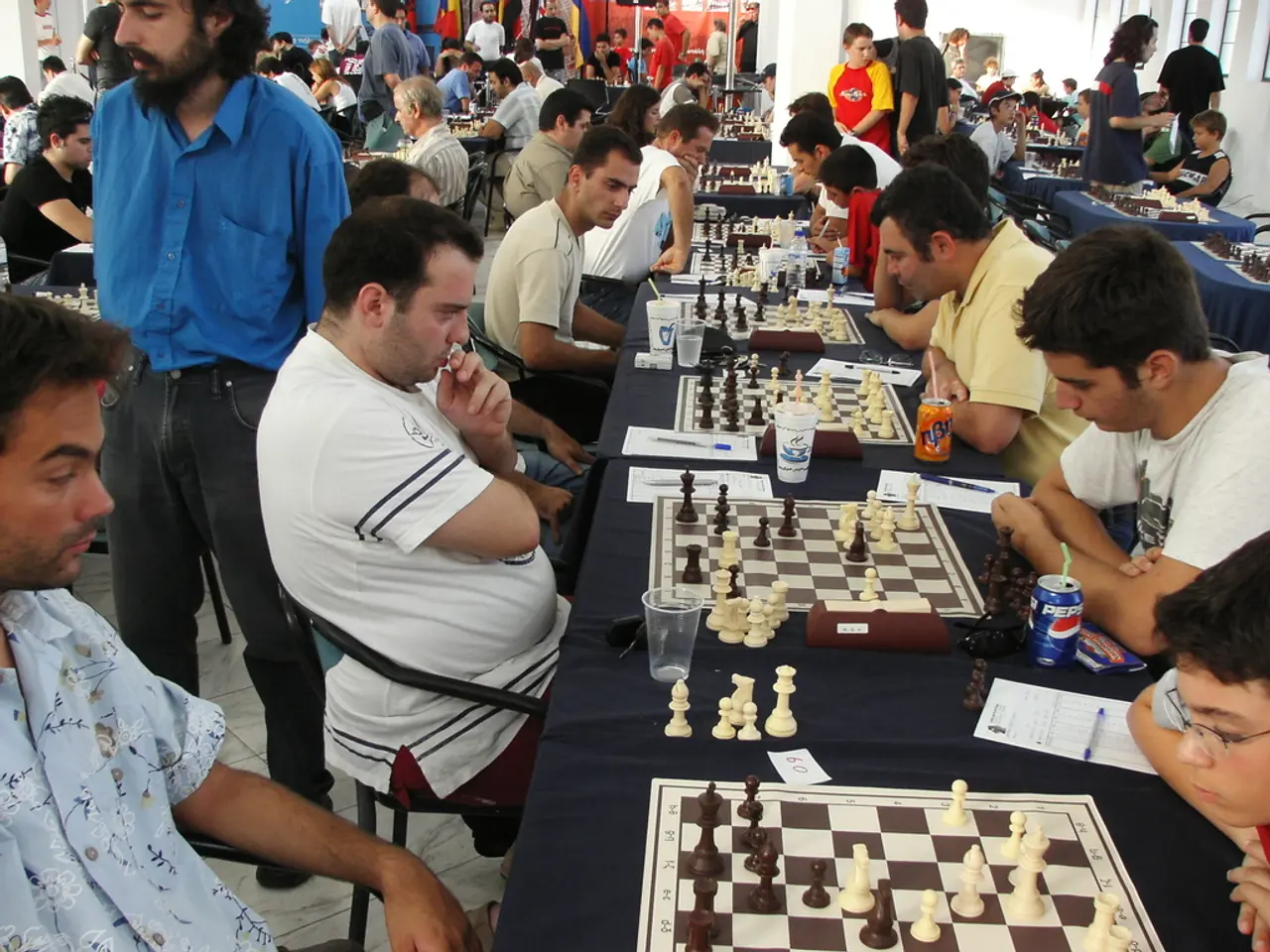The significance in the upcoming judge election is under debate - Significance of the Judges' Election: Implications to Consider
In a dramatic turn of events, the search for new judges to Germany's Federal Constitutional Court has become a major test for the young coalition government, threatening the Court's reputation, the Bundestag's functioning, and the political future of Chancellor Friedrich Merz.
The controversy surrounding the nomination of SPD candidate Frauke Brosius-Gersdorf, who faces plagiarism allegations and criticism over her stances on abortion and COVID-19 vaccine mandates, has delayed the filling of important vacancies, creating uncertainty about the Court's future composition and functioning.
The Bundestag, Germany's federal parliament, is currently in a political stalemate. The CDU/CSU bloc's withdrawal of support for Brosius-Gersdorf just before the vote, and their threat to abstain if the SPD proceeds, means the SPD candidate lacks the two-thirds majority needed for election. This blockage exposes and deepens rifts within the governing coalition, disrupting parliamentary procedures and raising questions about the coalition's ability to govern effectively.
Chancellor Merz’s leadership and the cohesion of his centrist coalition government are at risk. Critics within the coalition, like SPD’s Dirk Wiese, have condemned the Union for inconsistency and failure to stand firm. The controversy, intertwining politically sensitive issues such as abortion rights and plagiarism allegations, highlights the fragility of Merz’s coalition and threatens its stability and legislative agenda.
Several scenarios are now being considered to resolve the impasse. These include Brosius-Gersdorf presenting herself to the Union faction to alleviate doubts, a decision by the Bundesrat if the Bundestag cannot find a solution, or the SPD withdrawing its proposal for a new candidate. However, a two-thirds majority is still required in each case, making the decision-making process no easier.
The election of judges for the highest German court has traditionally been resolved quietly between major parties, but open political disputes are now occurring. The Federal Constitutional Court's reputation is under scrutiny, with SPD faction leader Matthias Miersch accusing the Union of attempting to dismantle the court and democratic institutions.
The Bundestag will convene for its next regular session on September 10, and a solution should be found by then. If no solution is reached, the decision will go to the Bundesrat, which would imply that the parliament is no longer fully decision-making capable.
The failed election of three constitutional judges has led to squabbling within the black-red coalition, casting a shadow over Chancellor Merz's initial aim of establishing a new cooperative governing style. The Federal Chancellor and the coalition parties must now navigate this crisis to maintain the peace, protect the reputation of the Federal Constitutional Court, and ensure the Bundestag's ability to act effectively.
[1] https://www.tagesschau.de/inland/bundesverfassungsgericht-kandidatur-101.html [2] https://www.spiegel.de/politik/deutschland/verfassungsrichter-wahl-frauke-brosius-gerdsdorf-kritisiert-von-union-a-1325767.html [3] https://www.n-tv.de/politik/Verfassungsrichterwahl-Frauke-Brosius-Gersdorf-kritisiert-von-Union-a-49399367.html [4] https://www.welt.de/politik/deutschland/article214410074/Verfassungsrichterwahl-Frauke-Brosius-Gersdorf-kritisiert-von-CDU-und-CSU.html [5] https://www.zeit.de/politik/deutschland/2022-07/verfassungsrichterwahl-frauke-brosius-gerdsdorf-union-spd-koalition
- The Commission, involved in policy-and-legislation, may be consulted on drafting a law to address the scandal surrounding the nomination of judges for the Federal Constitutional Court, as the crisis is now extending to the realms of policy and politics.
- As the general-news headlines swirl with discussions of the judges' nomination debacle and the stalemate in the Bundestag, crime-and-justice issues might be pushed to the backburner due to the urgency of resolving this political impasse.








